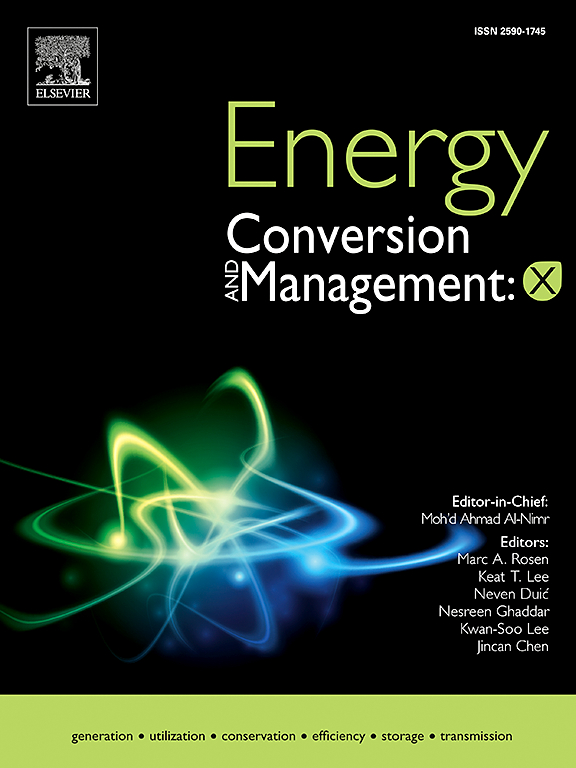自动插电式燃料电池汽车多目标实时能量管理优化
IF 7.1
Q1 ENERGY & FUELS
引用次数: 0
摘要
随着人们对气候变化的日益关注和减少碳排放的迫切需要,电动汽车提供了一种前景广阔的解决方案。然而,效率和耐用性方面的挑战依然存在。配备先进技术的自动驾驶汽车有可能彻底改变交通状况。本文对自主插电式燃料电池电动汽车储能系统的实时能量管理系统进行了新颖而全面的研究,该系统集成了电池、燃料电池系统和超级电容器。研究将其作为一个优化问题,旨在最大限度地减少燃料电池和电池的衰减,同时降低氢气和电力成本。该策略采用了移动视野方法,利用二次编程来优化功率分配。基本 GPS 数据用于预先规划车辆的充电状态轨迹,该轨迹也使用二次编程进行优化。此外,该系统还采用了基于模型预测控制的简单自适应巡航控制,在速度和功率优化之间架起了桥梁,确保沿规划路线安全行驶。通过各种电池充电水平和轨迹规划方案的验证,证明了该方法的稳健性和高效性,与其他充电状态规划方法相比,结果显示其优化率高达 99%。这凸显了该方法在各种驾驶条件下持续提供最佳功率分配的能力。本文章由计算机程序翻译,如有差异,请以英文原文为准。
Multi-objective real-time energy management optimization for autonomous plug-in fuel cell electric vehicles
With increasing concerns over climate change and the urgent need to reduce carbon emissions, electric vehicles offer a promising solution. However, challenges around efficiency and durability persist. Autonomous vehicles, equipped with advanced technologies, have the potential to revolutionize transportation. This paper presents a novel and comprehensive study of a real-time energy management system for the energy storage system of an autonomous plug-in fuel cell electric vehicle, which integrates a battery, a fuel cell system, and a supercapacitor. The research frames this as an optimization problem, aiming to minimize fuel cell and battery degradation while reducing hydrogen and electricity costs. The strategy employs a moving horizon approach, using quadratic programming to optimize power distribution. Basic GPS data is used to preplan the vehicle’s state of charge trajectory, which is also optimized using quadratic programming. Additionally, the system incorporates a simple adaptive cruise control based on model predictive control to bridge speed and power optimization, ensuring safe driving along the planned route. Validation through various battery charge levels and trajectory planning scenarios demonstrates the method’s robustness and efficiency, with results showing up to 99% optimality compared to other state of charge planners. This highlights the method’s ability to consistently deliver optimal power allocation under diverse driving conditions.
求助全文
通过发布文献求助,成功后即可免费获取论文全文。
去求助
来源期刊

Energy Conversion and Management-X
Multiple-
CiteScore
8.80
自引率
3.20%
发文量
180
审稿时长
58 days
期刊介绍:
Energy Conversion and Management: X is the open access extension of the reputable journal Energy Conversion and Management, serving as a platform for interdisciplinary research on a wide array of critical energy subjects. The journal is dedicated to publishing original contributions and in-depth technical review articles that present groundbreaking research on topics spanning energy generation, utilization, conversion, storage, transmission, conservation, management, and sustainability.
The scope of Energy Conversion and Management: X encompasses various forms of energy, including mechanical, thermal, nuclear, chemical, electromagnetic, magnetic, and electric energy. It addresses all known energy resources, highlighting both conventional sources like fossil fuels and nuclear power, as well as renewable resources such as solar, biomass, hydro, wind, geothermal, and ocean energy.
 求助内容:
求助内容: 应助结果提醒方式:
应助结果提醒方式:


